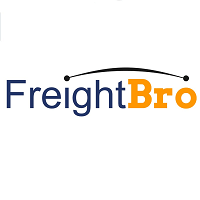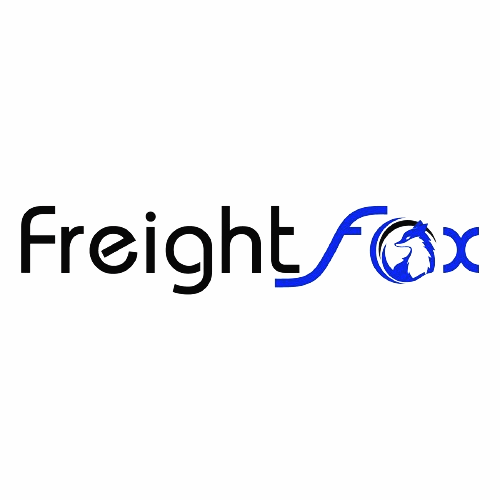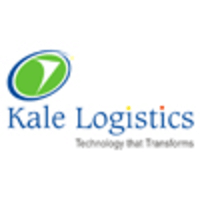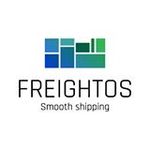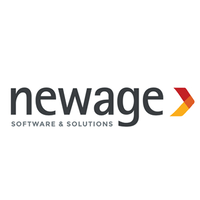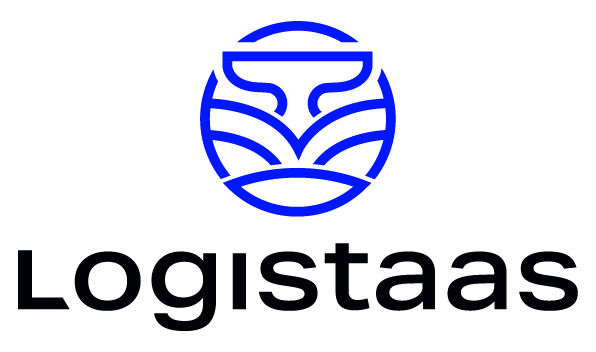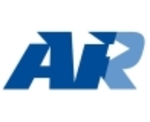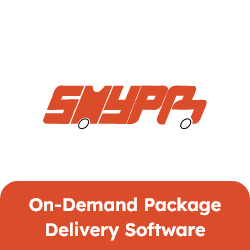What Is Freight Forwarding Software?
Software for freight forwarding is a digital solution created especially to automate and simplify the procedures involved in freight forwarding. It is a complete product that aids companies in the transportation sector in effectively managing their logistics and supply chain operations. This software provides a centralized platform for handling a number of duties, including route optimization, customs document management, and shipment tracking.
Freight forwarding software reduces the complexity of transportation management and increases corporate efficiency and cost savings by leveraging cutting-edge technology like artificial intelligence, machine learning, and cloud computing. Additionally, it makes it possible for all parties involved carriers, suppliers, and customers to collaborate in real time.
Freight forwarding software meets the various demands and specifications of various companies in the sector thanks to its intuitive interface and adaptable features. In conclusion, businesses hoping to improve operational efficiency and keep a competitive advantage in the ever-changing logistics industry must invest in freight forwarding software.
What Are The Recent Trends In Freight Forwarding Software?
Businesses in the logistics and transportation sector now depend heavily on freight forwarding software. Trends in freight forwarding software are always changing along with the industry due to the ongoing technological improvements. In order to make an informed choice when buying freight forwarding software for your company, it is crucial for buyers to keep up with current trends.
You should be aware of the following recent developments in freight forwarding software:
1. Solutions Based On The Cloud: The use of cloud-based solutions is one of the most recent developments in freight forwarding software. Users can use these software systems from any location with an internet connection because they are housed on distant servers. Because of its affordability, scalability, and user-friendliness, this approach has become more and more popular. Businesses can lower IT maintenance costs, increase collaboration, and streamline operations by utilizing cloud-based freight forwarding software.
2. Artificial Intelligence (AI) And Automation: By simplifying and automating numerous activities, automation and artificial intelligence are revolutionizing the freight forwarding sector. Freight forwarders may increase productivity and make well-informed decisions by using AI technology, which can analyze data and make predictions. Data entry, document processing, and shipment tracking are examples of automated procedures that can save time and cut down on errors. Freight forwarders can use AI to improve service quality, cut expenses, and optimize their routes.
3. Technology Integration: Blockchain and other technologies like the Internet of Things (IoT) are increasingly being incorporated into freight forwarding software. Real-time shipment tracking via IoT provides precise location and condition information. This connection can lower the risk of shipment damage, increase customer happiness, and improve supply chain visibility. On the other side, blockchain technology can facilitate document sharing between various supply chain participants, boost transparency, and improve data security.
4. Work From Home And Mobility: The trend of mobility in freight forwarding software has gained prominence as a result of the pandemic's emphasis on the value of remote work. Applications that are mobile-friendly make it simpler to manage operations from any location by enabling users to access the program from their mobile devices. Additionally, this trend has reduced the demand for actual office space by enabling freight forwarders to work remotely.
5. Solutions Focused On The Customer: Customer happiness is crucial for organizations in today's cutthroat economy. Customer-focused solutions like online booking, real-time tracking, and customer portals are currently the main focus of freight forwarding software. These characteristics enable companies differentiate themselves from rivals while also enhancing the client experience.
Benefits Of Using Freight Forwarding Software
For companies that need to effectively manage their shipping and logistics operations, freight forwarding software is an essential tool. It not only assists in optimizing the entire shipping process but also saves time, decreases costs, and increases accuracy.
The main advantages of adopting freight forwarding software and how it can support the expansion of your company will be covered in this buyer's guide.
1. Automation And Efficiency: The capacity of freight forwarding software to automate a variety of processes is one of its main benefits. With a few clicks, you can generate reports, track shipments in real-time, and create and manage shipping papers with ease using this software. By lowering the possibility of mistakes and delays, this automation not only saves time but also increases overall efficiency.
2. Cost-Effective: By streamlining routes and combining shipments, freight forwarding software can drastically lower your transportation expenses. Additionally, it allows you to evaluate rates offered by many carriers and select the most economical choice for your particular requirements. Additionally, the program aids in inventory tracking and management, guaranteeing effective inventory control and lowering handling and storage expenses.
3. Increased Visibility: Monitoring shipments and updating clients on their orders can be laborious and time-consuming tasks. On the other hand, freight forwarding software makes it simple to track shipments in real time and give clients precise delivery updates. In addition to improving customer pleasure, this also increases transparency and fosters client trust.
4. Improved Data Management: It can be quite difficult to manage massive amounts of shipping and logistics data. All shipping information may be arranged and stored centrally using freight forwarding software, which makes it manageable and readily available. This facilitates data-driven decision-making and offers insights to streamline your shipping procedure.
5. Integration With Other Systems: The capacity of freight forwarding software to interface with other systems, including warehouse and transportation management systems, is a noteworthy benefit. This removes data duplication, guarantees seamless data flow between departments, and boosts productivity and teamwork generally.
Important Factors To Consider While Purchasing Freight Forwarding Software?
Consideration should be given to a number of crucial issues when choosing to buy freight forwarding software. The efficacy and efficiency of the software for your company will be greatly influenced by these elements. When assessing freight forwarding software, bear the following considerations in mind:
1. Key Features: The software's feature set should be taken into account first. Basic features like document management, shipping monitoring, and customs compliance should be included. Additionally, search for sophisticated features like inventory management, automatic rate quotation, and system connection.
2. Scalability: The software's capacity to develop and change as your company grows is another crucial component. Verify that it can handle growing volumes and more user accounts without experiencing noticeable performance problems. For long-term cost savings and to prevent the inconvenience of later having to migrate to new software, scalability is crucial.
3. Easy-To-Use Interface: The process of freight forwarding can be intricate and data-intensive. As a result, the program must to have an intuitive user interface that is simple to use, comprehend, and navigate. Additionally, to save time and reduce the amount of training new users need, it should have an easy-to-understand interface.
4. System Integration: The program need to work well with and be compatible with your current systems. This will guarantee seamless data transfer and prevent errors in manual data entry and data duplication. Enhancing the software's capabilities can also be achieved by integration with other tools and apps.
5. Security: When choosing freight forwarding software, security is crucial because of the sensitive nature of the data being handled. To protect your data, look for features like frequent backups, multi-level user access control, and data encryption.
6. Customer Service: Any software, including freight forwarding software, needs strong customer service. Seek out a provider who provides prompt, attentive help, including troubleshooting and training. In the event that there are any software problems, this will save you time and money.
7. Cost: It's critical to thoroughly assess the software's price in relation to its features and advantages. Although price shouldn't be the sole determining factor, make sure you are getting value for your money by taking the long-term return on investment into account.
What Are The Key Features To Look For In Freight Forwarding Software?
The essential elements that will satisfy your unique requirements and optimize your operations should be taken into account when selecting the best freight forwarding software for your company.
When comparing various software solutions, the following are the most important elements to consider:
1. Automated Documentation: Seek out software that can automate the generation of customs forms, bills of lading, and other crucial shipping documents, as well as streamline your paperwork. You'll save time and lower the chance of mistakes by doing this.
2. Real-Time Tracking: Monitoring shipments is one of the most important parts of freight forwarding. Make sure the program has real-time tracking features so you can quickly keep an eye on the whereabouts and condition of your cargo at all times.
3. Carrier Management: A robust carrier management system that enables you to monitor and manage your connections with shipping carriers should be included in any quality freight forwarding software. This might assist you in negotiating lower prices and guaranteeing your products arrive on time.
4. Integration: Other company systems, such accounting and customer relationship management (CRM) software, should be able to integrate with the program. This will streamline your processes and produce a smooth data flow.
5. Cost Estimation And Management: Seek out software that enables you to precisely calculate expenses for each shipment by taking into account the kind of cargo, mode of transportation, and other variables. You'll be able to make better judgments and better manage your spending as a result.
6. Warehouse Management: Select software that provides warehouse management features like inventory tracking, pick and pack, and warehouse optimization if you own a warehouse. This will assist you in effectively managing your warehouse and inventory operations.
7. Customizable Dashboards: The program should include dashboards that can be customized to show important data and metrics that are pertinent to your company. This will assist you make data-driven decisions and provide you with a brief snapshot of your operations.
8. Compliance And Security: To safeguard your private information and stop cyberattacks, use software that complies with international shipping laws and has cutting-edge security capabilities. You may select the best freight forwarding software for your company that will help you optimize operations, boost productivity, and enhance customer happiness by taking into account these important aspects.
Why Do Businesses Need Freight Forwarding Software?
For a variety of reasons, businesses use freight forwarding software. This all-inclusive and cutting-edge technology improves accuracy and efficiency while saving time and money by streamlining the cargo management process from booking to delivery. To begin with, freight forwarding software reduces the possibility of human error by automating manual activities. This guarantees that all cargo data, including origin, destination, and shipping information, is precisely entered and available instantly.
This lowers the possibility of supply chain and logistics operations experiencing delays and expensive errors. The capability of freight forwarding software to track shipments in real-time is another important advantage. Businesses may arrange their operations and resources appropriately and ensure on-time delivery by using this program to receive notifications and updates on the location of their shipments.
This enhances customer satisfaction by enabling companies to give their clients accurate and current information about their shipments. Additionally, freight forwarding software gives companies the ability to manage several carriers and transportation methods air, sea, road, and rail all from a single, centralized platform. Businesses can save time and cut down on paperwork by doing away with the need to employ various systems or manual techniques.
Better negotiating and provider selection based on performance and pricing are also made possible. Furthermore, freight forwarding software provides tools that let companies streamline their shipment routes, cutting down on expenses and speeding up delivery. Businesses that handle complicated and multinational goods, where route planning can be difficult, can particularly benefit from this.
Businesses can use this program to assess shipping costs and select the most economical and effective shipping option for their shipments. Finally, freight forwarding software gives companies useful data analytics and insights to help them better understand and manage their carriers, routes, and shipping costs. This helps companies to manage their supply chain and logistics operations, find areas for improvement, and make data-driven decisions.
How Much Time Is Required To Implement Freight Forwarding Software?
The complexity of the software and the particular requirements of the company can affect how long it takes to develop freight forwarding software. On the other hand, a full implementation can typically take a few weeks to several months. The size and breadth of the company are two important variables that can affect the timetable.
Compared to larger, more complex operations, smaller businesses with simpler processes might be able to deploy the software more quickly. The installation time may also be impacted by the degree of integration and customization needed. Usually, there are multiple steps in the implementation process, such as testing, training, and data migration.
This guarantees that the software is customized to meet the particular needs of the company and that staff members are accustomed to utilizing it. To guarantee a seamless transition and appropriate integration of the software with their current systems, firms must allot sufficient time for the installation process. Rushing the procedure can result in mistakes and future headaches.
The amount of time needed to deploy freight forwarding software will ultimately depend on the particular requirements of the company and the degree of assistance offered by the software supplier. To obtain a more precise quotation depending on the needs of your company, it is advised to speak with the provider.
What Is The Level Of Customization Available In Freight Forwarding Software?
Every company has different demands and specifications when it comes to freight forwarding. For this reason, having software that can be customized is essential to the efficient operation of the business. Depending on the particular requirements of the company, freight forwarding software offers different degrees of customisation. First off, the majority of freight forwarding software provides basic customisation features including the ability to brand papers and invoices with company logos.
This aids companies in preserving a polished appearance and consistent branding. Next, a lot of software programs let customers personalize their dashboard according to their favorite design and the main metrics they like to view quickly. This promotes efficiency and streamlines operations. Regarding certain features, freight forwarding software provides a variety of customization choices.
For example, users can design and oversee editable templates for bills of lading, invoices, and bids based on the particular needs of their business. Businesses may generate documents more accurately and save time with this functionality. Additionally, some software programs allow you to create and manage custom fields for saving and organizing crucial data that is specific to a given company or shipment.
Better data organization and decision-making are made possible by this. The ability to interact with other corporate software and systems is another feature that many freight forwarding software packages provide. This increases the degree of customisation because companies may use the software to combine their current workflows and procedures, creating a solution that is specifically tailored to meet their needs.
All things considered, freight forwarding software offers a range of customization options, from simple branding choices to more complex feature and integration customisation. Businesses must carefully consider their particular requirements before selecting a software program that provides the appropriate degree of customization to satisfy those demands.
Which Industries Can Benefit The Most From Freight Forwarding Software?
For companies operating in the logistics and transportation sector, freight forwarding software is an effective tool that may boost productivity and streamline processes. Although there are many advantages to using this software, some sectors stand to benefit the most from doing so on a regular basis.
1. Manufacturing Sector: The transportation of completed goods and raw materials to and from manufacturing facilities is a critical component of the manufacturing sector. Manufacturers can quickly schedule deliveries, track shipments, and control inventory levels with freight forwarding software, which improves supply chain management and lowers costs.
2. E-commerce Industry: Timely and effective delivery is essential to success in the fast-paced world of e-commerce. E-commerce companies may satisfy client expectations and guarantee on-time deliveries by utilizing freight forwarding software, which provides real-time tracking, automatic notifications, and optimized procedures.
3. Retail Sector: Retailers frequently handle a large number of shipments, both from inside the country and outside. By offering a centralized platform for handling all transportation requirements, including tracking shipments, creating labels, and handling customs paperwork, freight forwarding software can streamline this procedure.
4. Healthcare Sector: Timely delivery is essential in the healthcare sector because delays might have detrimental effects. Hospitals and other healthcare institutions can improve patient care by utilizing freight forwarding software to guarantee the prompt and dependable delivery of drugs, medical equipment, and supplies.
5. Agriculture Industry: Managing intricate logistics, such as temperature-controlled transportation and regulatory compliance, is necessary when exporting agricultural products. By streamlining these procedures, freight forwarding software can control expenses while guaranteeing that the food arrives at its destination in ideal shape.
Conclusion
In summary, selecting the appropriate freight forwarding software is essential to streamlining your freight operations and boosting productivity. Before choosing among the wide range of tools and features on the market, it's critical to thoroughly consider your needs and financial situation. Start by outlining your business objectives and goals, and then analyze different software solutions to select one that best matches your needs.
Seek out features that are easy to customize, interfaces that are easy to use, and system integrations. Remember to take into account the software's scalability in order to support your future expansion. Additionally, study user reviews and testimonials to gain a better idea of the features, customer service, and general user experience of the product.
Never be afraid to contact software suppliers and request a free trial or demo so you can try the program out for yourself. Finally, remember that long-term advantages including higher production, cost savings, and enhanced customer satisfaction can result from investing in quality freight forwarding software. Thus, take your time, investigate thoroughly, and make an informed decision. We hope that this buyer's guide has given you the knowledge you need to make an informed choice.



